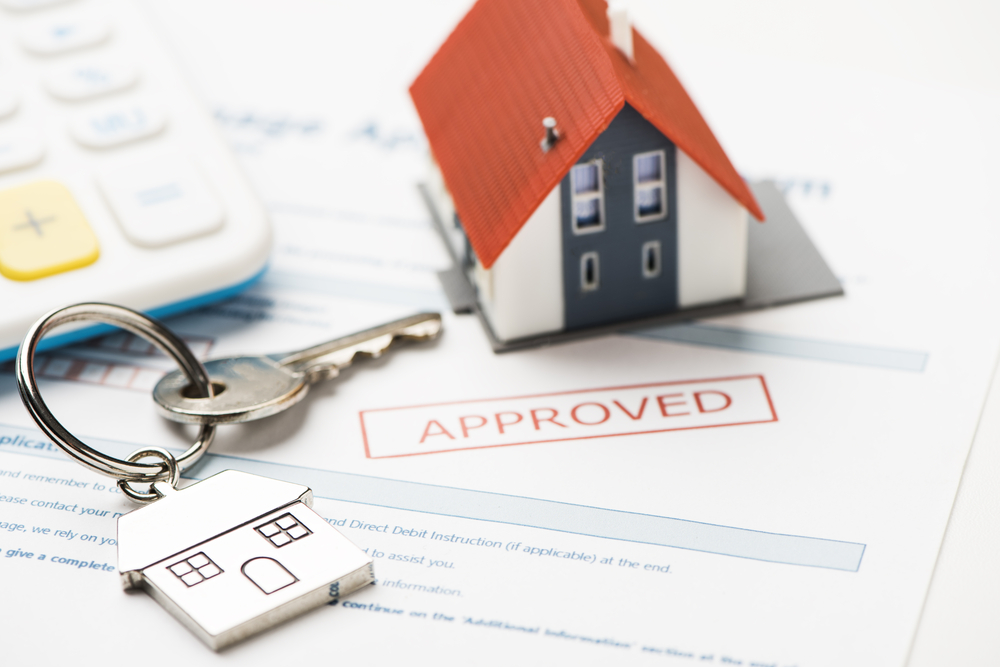Gathering funds for a down payment can be challenging, especially if you’re a first-time homebuyer. But pursuing your big home-buying plans doesn’t always have to mean a big down payment. There are quite a few zero and low down payment options that can make that first step toward homeownership more affordable.
How can you buy a house with little or no money down? Let’s explore some of your options.
Zero-Down Payment Loans
Zero-down payment loans are specially designed for people who want to buy a home, but have little money saved up for a down payment. VA and USDA loans are two of the most popular types of zero-down payment loans.
VA and USDA loans are insured by the government, protecting the lender. What does that mean for you? Typically, more flexible income and credit requirements, lower rates than conventional loans and, yes, a zero-down payment.
Zero-down payment loans do have specific qualification requirements, but if you meet the criteria, they can be a helpful solution for getting closer to your new home.
VA Loans
VA loans can be a great option for veterans and their spouses, reservists and members of the National Guard who served more than six years. These loans are mortgages guaranteed by the U.S. Department of Veterans Affairs and offered by independent lenders. VA loans provide numerous benefits to qualified borrowers:
- No down payment requirement
- Typically, it has lower interest rates than conventional loans
- More flexible income and credit criteria
- No monthly mortgage insurance premiums
Visit the U.S. Department of Veterans Affairs website to learn more about VA home loan eligibility requirements and how to request a Certificate of Eligibility (COE) to show your lender.
USDA Loans
If you live in a rural area and have a steady low or modest income, you may want to explore a USDA loan backed by the United States Department of Agriculture (USDA). This loan is designed for borrowers purchasing a property in an eligible rural area, but who are unable to secure a conventional loan. Some of the advantages of a USDA loan include:
- No down payment
- More relaxed credit requirements
To apply for a USDA loan, you’ll need to work with an approved lender in your state. The USDA website is a good resource for learning more about this program, eligibility details and how to find a local lender.

Source: Fabio Balbi/Shutterstock.com
Low Down Payment Loans
If you have some money saved up, you may want to consider a low down payment loan option. While a 20% down payment is often regarded as the standard, many programs allow you to put down significantly less.
Conventional Loans With Mortgage Insurance – Down Payment as Little as 3%
Most people looking to buy a primary residence can take out a conventional fixed-rate or adjustable-rate loan and put down as little as 3%. Keep in mind that while 3% down is the minimum, you will be required to have mortgage insurance, a policy that protects your lender if you fall behind on your mortgage payments or end up in foreclosure.
And remember, even if you have substantial savings, a sufficient, steady income and little debt, it might make sense to put less down and keep a reserve of cash savings.
Homebuyer Assistance Programs
Homebuyer assistance programs are typically government or nonprofit-sponsored initiatives that help qualified homebuyers purchase a home. These programs may provide loans or other forms of financial assistance to help with the down payment. Each program has its own qualification criteria, and you’ll be required to work with a participating lender.
Zero-percent forgivable loans. These loans are second mortgages with a 0% interest rate. They may cover some or all of your down payment, and you won’t have to repay them if you own and live in your home for a certain period of time.
Zero-percent deferred-payment loans. These 0% loans may cover your entire down payment, and you will only have to start repaying them once you sell your home, refinance your mortgage or pay off your mortgage in full.
Down payment assistance programs are usually sponsored by government agencies, nonprofits and housing organizations and can vary by state or region. Reach out to a Loan Officer or your local housing authority to look for programs in your area.
FHA Loans. Federal Housing Administration (FHA) loans are an option for homebuyers who have less money to put down on a new house and lack the credit history to qualify for a conventional loan. Your down payment can be as low as 3.5%, and the loan has a broader range of income, debt and credit history requirements.
Freddie Mac BorrowSmart®
Freddie Mac, a government-sponsored enterprise (GSE) established to increase the availability of mortgages to homebuyers, offers a BorrowSmart loan program available through certain lenders. This program provides financial assistance of up to $1,500* to income-qualified borrowers to help them with their home down payment or closing costs. Funds can be used on eligible programs, which may require down payments as low as 3%.
Explore Affordable Down Payment Options With a Lender
While there are numerous affordable down payment options available, keep in mind that the less you put down, the more you’ll need to borrow. This means you could end up with higher monthly payments and pay more interest in the long term. However, if the monthly payments fit your budget, a lower down payment may be a suitable choice for you.
If you want to purchase a home, but are concerned about the upfront expenses, talk to a lender and explore the programs that allow for little or no money down. You might be pleasantly surprised to see how achievable homeownership can be.
*Must meet the requirements of Freddie Mac Home Possible®, standard conforming Freddie Mac, or Pennymac Manufactured Home requirements in addition to Freddie Mac BorrowSmart® requirements. Primary residence purchase only.
All occupant borrowers must complete pre-purchase counseling with the Homeownership Preservation Foundation (HPF). An upfront, non-refundable, $99 homebuyer counseling fee is required to be paid by the borrower to HPF at the time of the required counseling.

